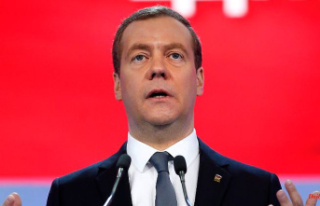In the future, Russia and Turkey could deliver grain free of charge to countries in need, especially in Africa. This was announced by Turkish President Erdogan after talks with his Russian counterpart Putin. Recently there was a dispute over grain exports from Ukraine.
According to Turkish information, Moscow and Ankara plan to deliver grain free of charge to countries in need. "When I spoke to Mr. Putin, he said: 'Let's send this grain to Djibouti, Somalia and Sudan for free.' We agreed," said Turkish President Recep Tayyip Erdogan in Istanbul. Details should be discussed at the G20 summit in Bali. It is not yet clear whether Russian President Vladimir Putin will actually attend the summit in mid-November.
The Kremlin also announced this week that Putin was ready to deliver large quantities of grain and fertilizer to Africa free of charge. Like Ukraine, Russia is a major grain exporter. The country expects a harvest of 150 million tons of grain this year - 100 million tons of it wheat. This also includes the yields from the arable land that Moscow annexed as a result of the annexation of four areas in eastern Ukraine, which was classified as illegal under international law.
Most recently there had been a dispute over the grain agreement concluded between Ukraine, Russia, Turkey and the UN. Russia had temporarily terminated the agreement unilaterally. The Kremlin cited attacks by Ukraine on Russian ships and the port of Sevastopol as a reason. After international criticism, Russia returned to the agreement after a few days. Ships continue to depart from Ukrainian ports. Russia had also repeatedly expressed criticism that the grain was hardly delivered to poorer countries.
Russian grain and fertilizer exports are not subject to sanctions from Western countries. Nevertheless, many transport companies, insurers and financiers are unsure and are currently avoiding this business.












